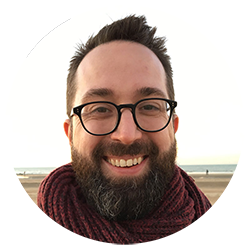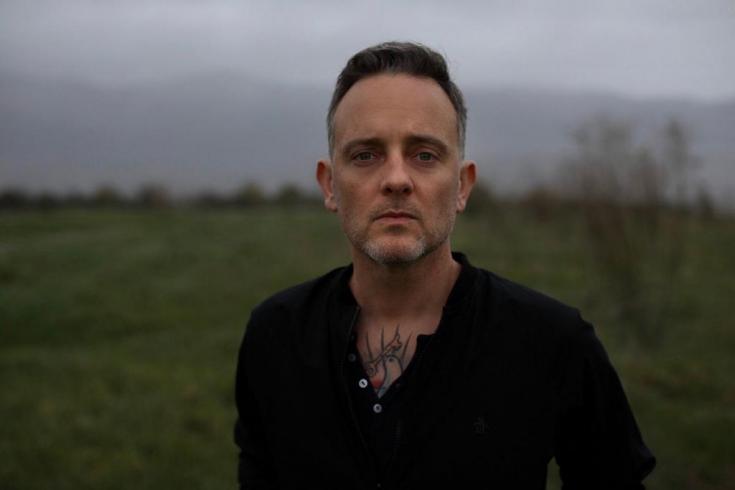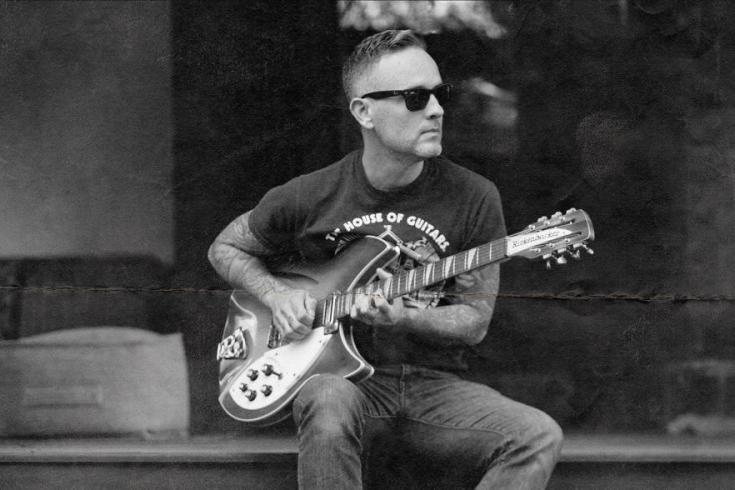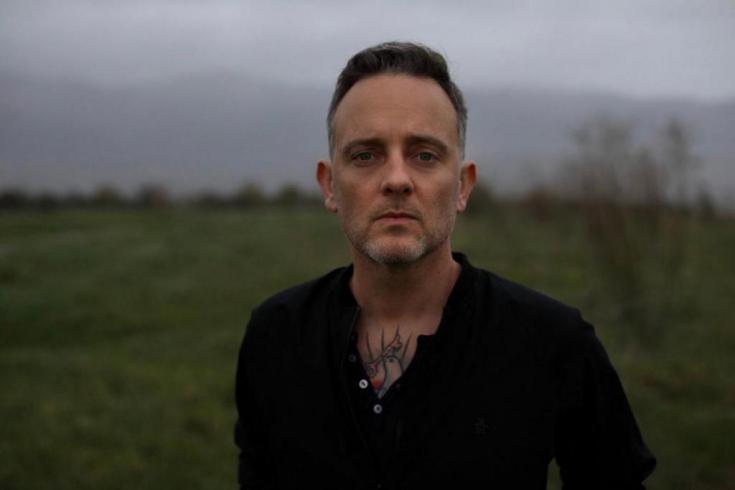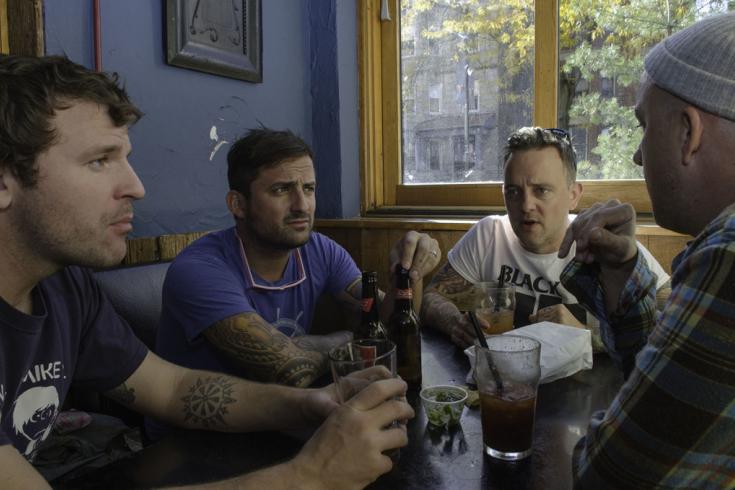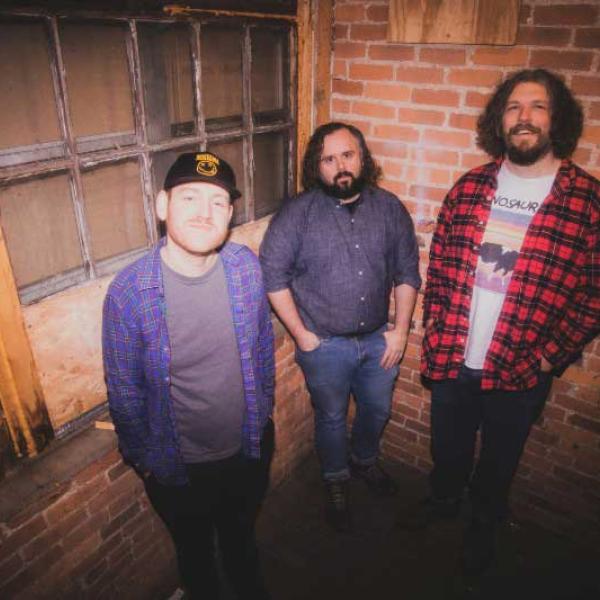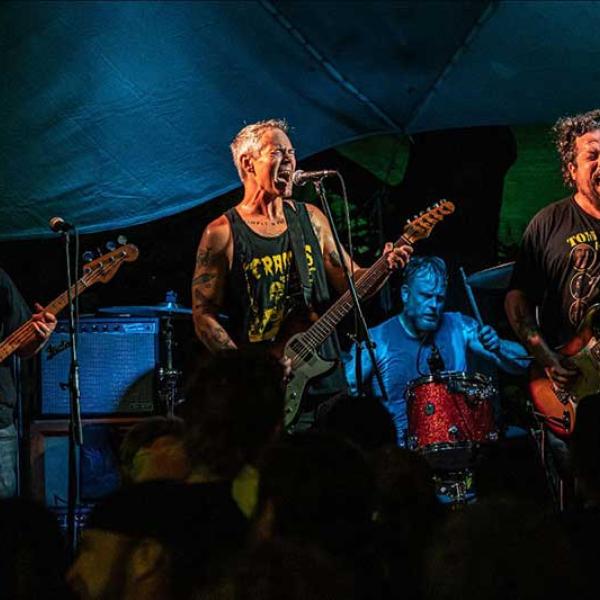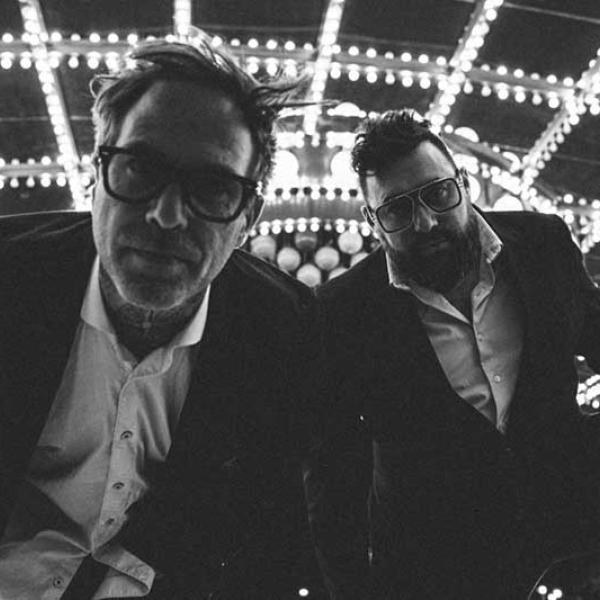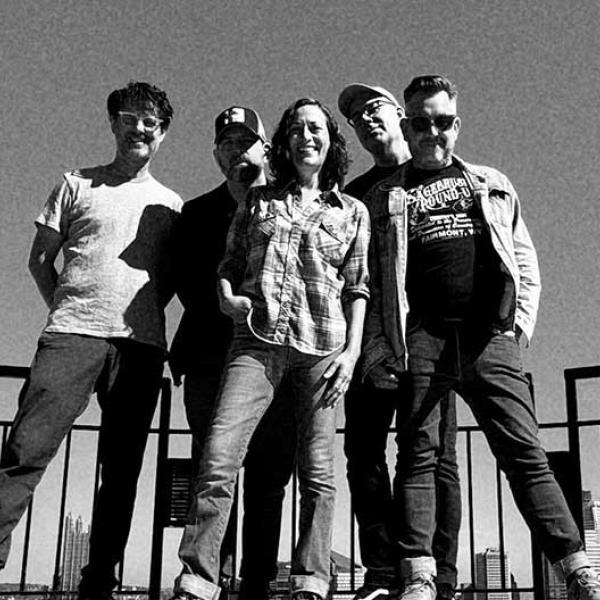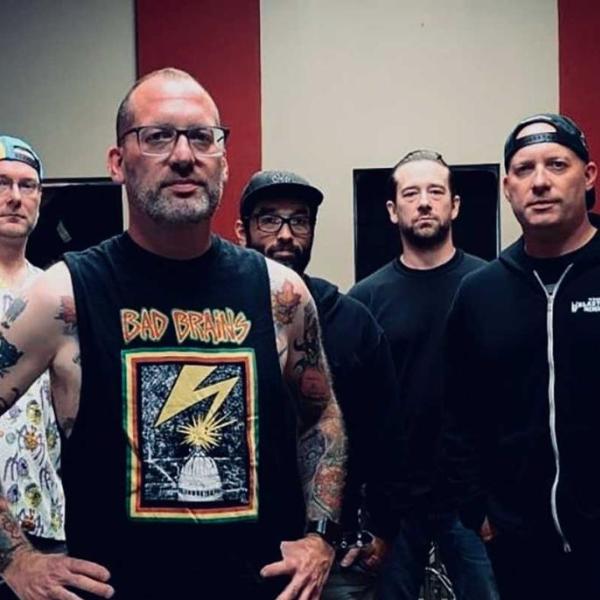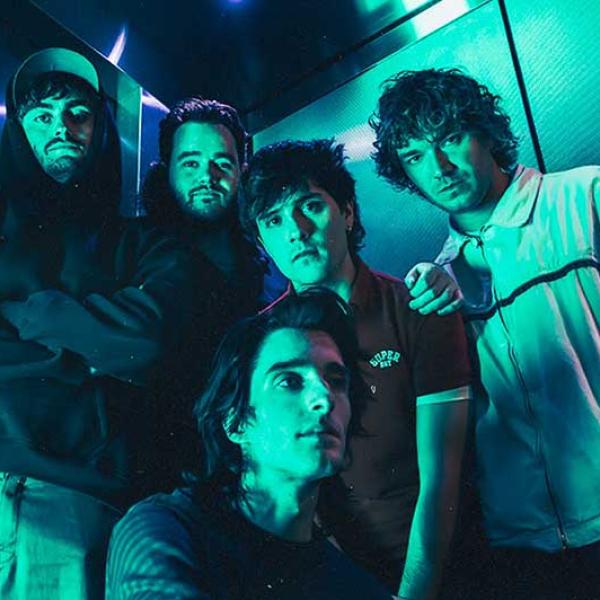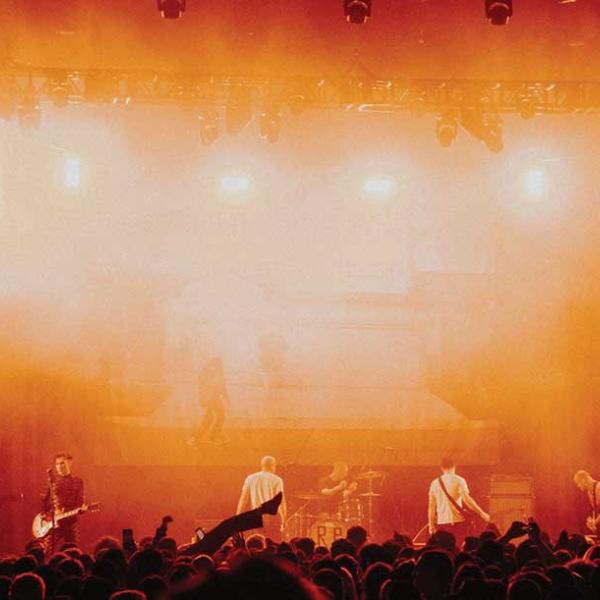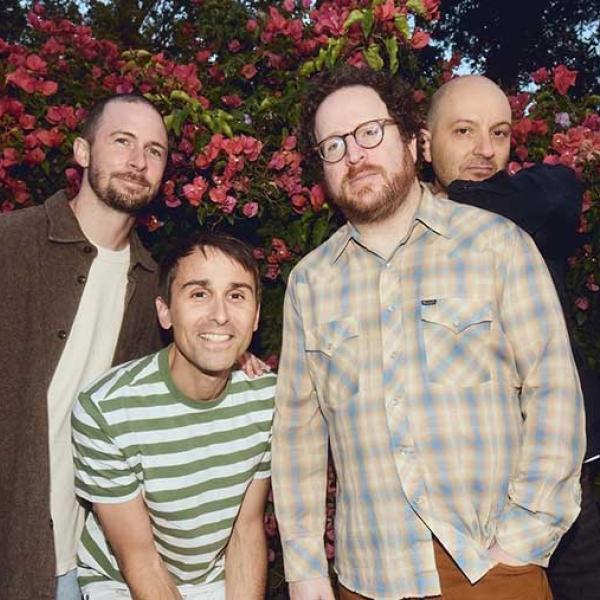Features
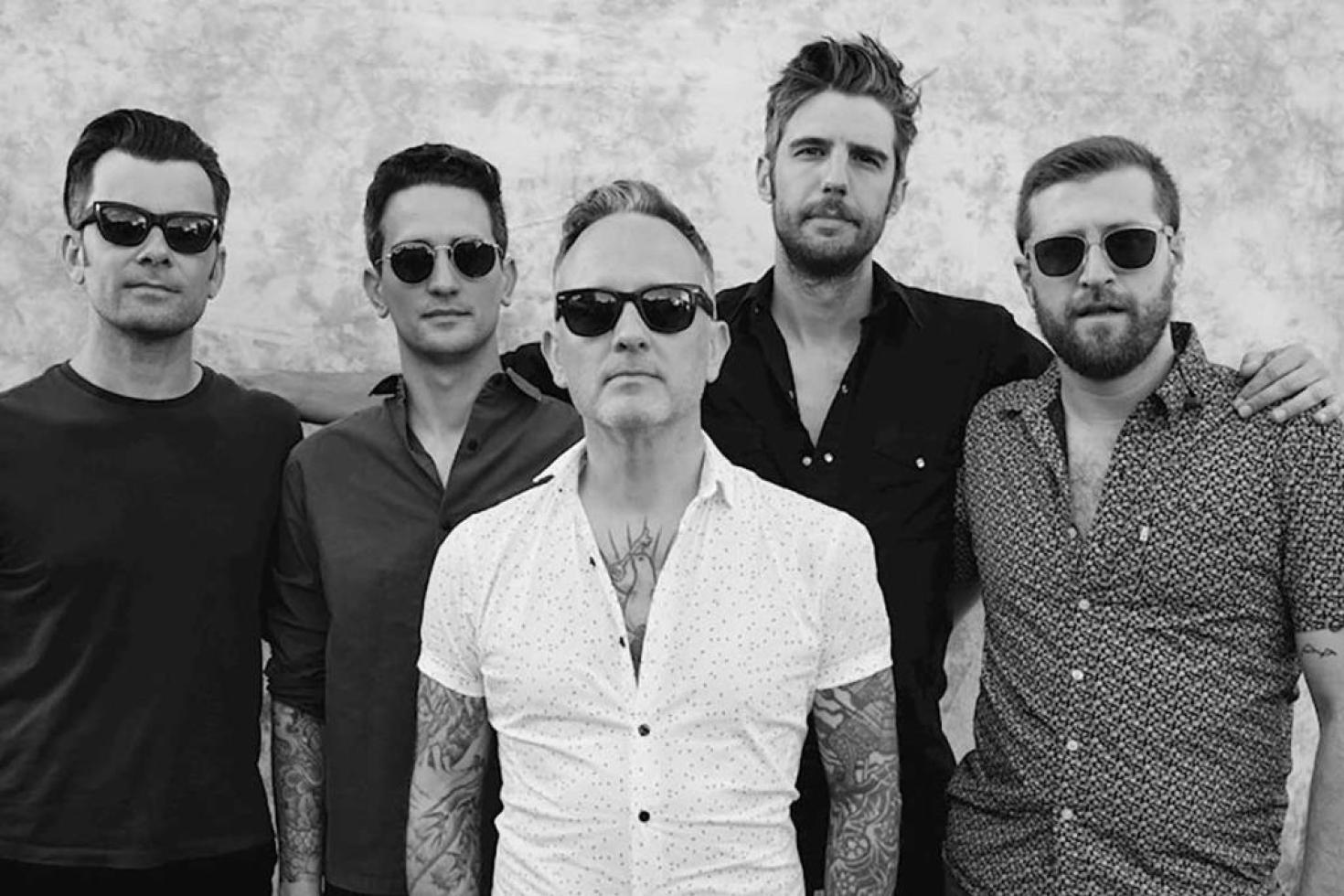
Following his recent Americana-leaning albums (2021's Blood Harmony and 2023's Drive It Like It’s Stolen), Philly-bred and California-based singer-songwriter Dave Hause is back with a full-blown rock 'n roll statement. That album is called …And the Mermaid and will be out this Friday on Hause's own label, Blood Harmony Records..
Nearly three decades into his career, Hause is still chasing the magic of rock and roll. More than just a personal milestone, …And the Mermaid is about community, connection, and what can happen when you throw in with something bigger than yourself. Or, as Hause himself puts it: “That’s what a band promises. That’s what a live music event promises. If you can work together, it’s better than being isolated and living in fear.”
PRT: Your new solo album has more big guitar energy compared to Blood Harmony and Drive It Like It’s Stolen. Was there one specific moment that made you want to plug back in and turn things up again?
Dave: Not one specific moment, no. It was a litany of things. From Rage Against The Machine’s reunion, to playing with The Loved Ones at Sing Us Home 2024, to taking my kids to see Rancid and Green Day at a stadium that ignited and then stoked the fire to make a full-on punk rock and roll record.
PRT: You’ve mentioned that those last couple of albums gave you the confidence to return to the rock and punk side of things. How did you ever lose that confidence in the first place?
Dave: It wasn’t that I lost confidence in being able to play that way. What I mean by that is that I proved to myself that I can hold my own as a songwriter in the Americana world, and that felt like some kind of win for me. For years the “punk” thing often felt like you were getting an asterisk, like “oh he’s good, for a punk” or something. I’m sheepish to even admit to this, but I did want to prove myself outside of the confines of the punk rock ecosystem. Once that goal felt more or less achieved, it relaxed me enough to be open to whatever was next, which was expressing some songs in a much more loud way.
PRT: “Revisionist History” feels like one of your most uncharacteristic songs to date. Can you tell me a bit about where that one came from?
Dave: Luke Preston, our bass player, and I LOVE the band IDLES. He built out a track that had that droning verse thing with a stream of consciousness sort of lyric. We all got together to finish it and Tim [Hause] and I added that dance-y, melodic chorus, and then figured out how to go back and incorporate some of the lyric Luke initially wrote, along with a more structured idea of how demagogues love to play on nostalgia to gin up fear of the present and the future.
PRT: The album also includes a cover of Tim McIlrath’s “Bible Passages.” Why did you choose that song? And do you know if Tim has heard your version yet?
Dave: Yep, Tim has heard it and was very excited about how the recording came out. I just always loved the song and wanted to hear it over the years, and so we took matters into our own hands and asked Tim to send over a demo of it. We took it into the session and recorded it quickly, and then it felt like a nice, quieter moment to place in the context of this loud record.
PRT: You recorded this new album with Jesse Gander, whereas the last couple were done with Will Hoge. Was that a conscious choice because Hoge is rooted in Americana while Gander is more associated with louder bands?
Dave: Yep. I’ve wanted to work with Jesse for a while but wanted to make sure we had the right material to bring into that setting. I’ve learned a ton from working with every producer we worked with, and Jesse and Will are both incredible at what they do.
PRT: What did Gander bring to the table that really made a difference for you?
Dave: His approach to guitar sounds was unique in that he really knows how to quickly get a sound that’s just a little bit extra beyond what we would’ve settled for. He is a keyboard player so he really understands where keyboards should sit in a mix, and he approaches guitar sounds differently because of his keyboard-oriented ears. Ultimately, though, his most impressive skill is mixing; he’s just a ninja when it comes to mixing and became the sixth member of the band when he takes the tracks and starts adding his magic.
PRT: Seven albums in, do you ever see yourself producing your own records? Or do you prefer having that extra voice in the studio?
Dave: I co-produce every album I make, and I say that with complete respect and love to all of the folks I’ve worked with who’ve produced records for me. I think it’s important to have other people to work with on things. It’s hard to keep the balance between “all of this sounds horrible and the songs suck” and then the opposite pole of “Oh my God, everything I’m doing is a genius idea.” The best stuff comes from some form of collaboration, even if that’s in the mixing or the mastering.
PRT: With Verses, Nurses and Hearses, you also released three mostly acoustic albums recently where you re-imagined all the songs from The Loved Ones. Where did that idea come from?
Dave: I have been wanting to own a master recording of every song I’ve written for awhile, and when we had a tour postpone due to a COVID variant, we decided that rather than stay home, we’d go to Nashville and get some good, meaningful work done. It was a really fun exercise to go back to those songs and reimagine them, and then to re-present them in a new context to people.
PRT: Having missed plugging in, turning up the volume, and inviting the band to contribute more, it’s a bit of a surprise that you’re joining the upcoming Common Threads tour as a solo act. Why go that route?
Dave: This answer may be too much letting people behind the curtain, but the reason is twofold: 1. The band is really expensive to bring anywhere, and our plan is to headline all over the world in 2026 once people have gotten the record, learned it and hopefully fallen in love with it. Second, the Common Thread tour is chock full of punk and hardcore bands, and a great way to distinguish my music from everything else that will be heard on those days is to strip away most of the extra instrumentation and just let the songs do the work. We’ll see how that goes.
PRT: If you could do a collaborative album like Bad Books, who would be at the top of your wishlist to work with?
Dave: I’d love to work with Lori McKenna, Tim Armstrong, Joy Oladokun, Mike Ness and Jenny Lewis. But probably at the top of the list is Mike Campbell.
PRT: And speaking of collaborations… is there any chance we’ll ever see another release from The All Brights?
Dave: Yeah! My friend Matt, who I wrote The All Brights songs with, is one of my favorite people, let alone favorite collaborators. We’ve both been super busy with our jobs — he works for the U.S. Forest Service in Oregon — and raising our kids, but I’d love to make more music with him.

